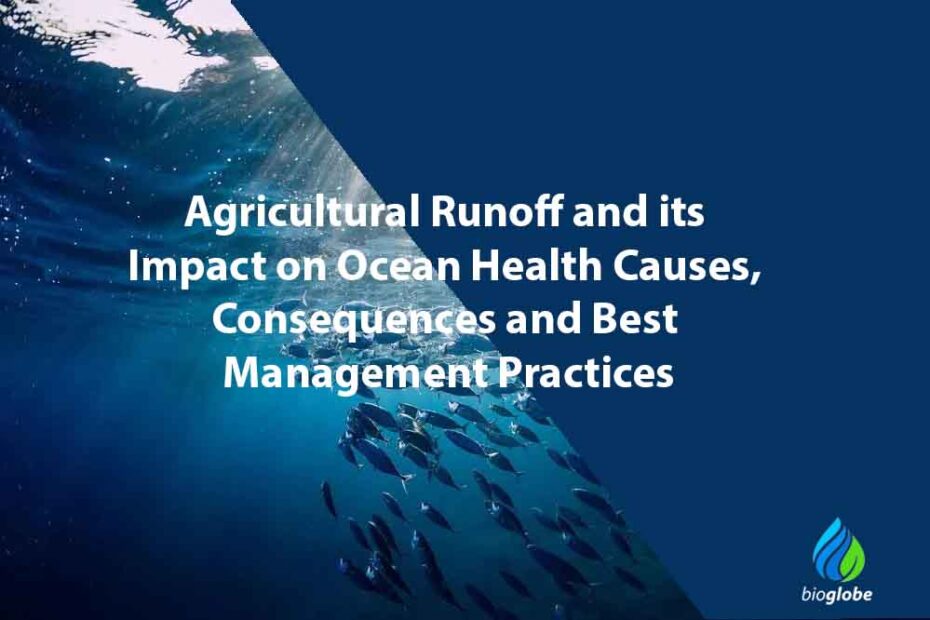This article discusses the causes and consequences of agricultural runoff on ocean health, providing insights into effective practices to minimize its harmful effects.
Agricultural Runoff and its Impact on Ocean Health: Causes, Consequences, and Best Management Practices
Introduction:
Agricultural practices have a significant influence on the health of our oceans. One major concern is the issue of agricultural runoff, which refers to the movement of water containing pollutants from agricultural areas into nearby water bodies, eventually reaching the oceans. In this blog post, we will delve into the causes and consequences of agricultural runoff on ocean health. Furthermore, we will explore best management practices that can help mitigate the detrimental effects of agricultural runoff and promote sustainable farming.
1. The Causes of Agricultural Runoff:
Agricultural runoff occurs due to various factors and practices in modern agriculture. These can include:
– Excessive use of fertilizers: The application of fertilizers in large quantities can lead to an excess of nutrients, such as nitrogen and phosphorus, in agricultural fields. When it rains or when irrigation occurs, these nutrients can be washed off into nearby water bodies.
– Improper irrigation and drainage: Inadequate irrigation and poor drainage systems can contribute to runoff by allowing water to accumulate and transport pollutants from agricultural fields.
– Soil erosion: When soil is inadequately protected or managed, heavy rainfall or irrigation can cause erosion, carrying sediments and associated pollutants into water bodies.
2. Consequences of Agricultural Runoff on Ocean Health:
The impact of agricultural runoff on ocean health is far-reaching and can have several detrimental consequences:
– Eutrophication: Excessive nutrient runoff, particularly nitrogen and phosphorus, can cause eutrophication in coastal areas. This leads to the overgrowth of algae, resulting in harmful algal blooms that deplete oxygen levels in the water, harming marine life.
– Coral reef degradation: Sediment and chemical runoff from agricultural areas can smother and damage coral reefs, leading to their decline and loss of habitat for diverse marine species.
– Harm to marine organisms: Pesticides and herbicides used in agriculture can enter water bodies through runoff, causing toxicity to marine organisms and disrupting aquatic ecosystems.
3. Best Management Practices to Mitigate Agricultural Runoff:
To address the issue of agricultural runoff and protect ocean health, implementing best management practices is crucial. Some effective strategies include:
– Precision agriculture: Using advanced technologies and data-driven approaches to optimize fertilizer application and irrigation, reducing excess nutrient runoff.
– Conservation practices: Implementing soil conservation techniques such as cover cropping, contour farming, and terracing to prevent soil erosion and reduce sediment runoff.
– Buffer zones and riparian buffers: Establishing vegetative buffers along water bodies to trap and filter runoff, reducing the amount of pollutants reaching the oceans.
– Integrated pest management (IPM): Adopting IPM practices that minimize the use of pesticides and promote natural pest control methods, reducing chemical runoff.
Conclusion:
Agricultural runoff poses significant challenges to ocean health, but by understanding its causes, consequences, and implementing best management practices, we can work towards mitigating its impact. Through sustainable farming practices, precision agriculture, and conservation efforts, we can protect our oceans, preserve marine ecosystems, and ensure the well-being of future generations.
Questions:
1. Q: What are the causes of agricultural runoff?
A: Agricultural runoff can be caused by excessive use of fertilizers, improper irrigation and drainage practices, and soil erosion from inadequate soil protection or management [[1](URL)].
2. Q: What are the consequences of agricultural runoff on ocean health?
A: Agricultural runoff can lead to eutrophication, causing harmful algal blooms and oxygen depletion in coastal areas. It can also result in coral reef degradation and harm marine organisms through the introduction of pesticides and herbicides.
3. Q: How can agricultural runoff be mitigated?
A: Best management practices to mitigate agricultural runoff include precision agriculture, conservation practices like cover cropping and terracing, the establishment of buffer zones and riparian buffers, and the adoption of integrated pest management techniques.
4. Q: What is precision agriculture?
A: Precision agriculture involves using advanced technologies and data-driven approaches to optimize the application of fertilizers and irrigation. It aims to reduce excess nutrient runoff by precisely targeting the needs of crops.
5. Q: Why is the preservation of ocean health important?
A: Preserving ocean health is crucial because oceans are essential for maintaining biodiversity, supporting livelihoods, and regulating the Earth’s climate. Agricultural runoff can pose significant threats to ocean ecosystems and human well-being, emphasizing the importance of mitigating its impact.


